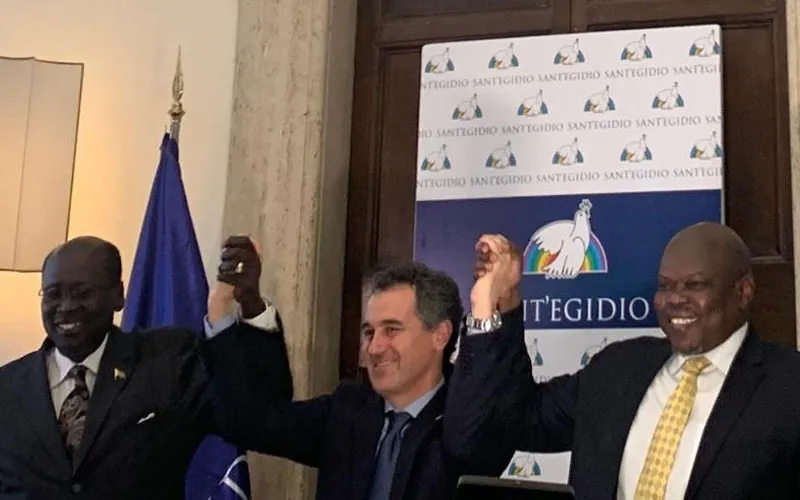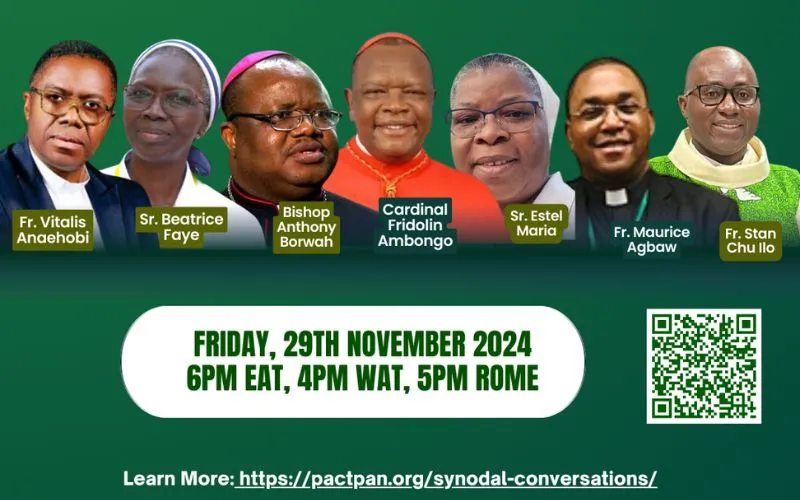Vatican City, 14 January, 2020 / 4:28 am (ACI Africa).
The Rome-based lay Catholic association dedicated to the provision of social services and arbitrating conflicts, Sant’Egidio Community has, in a two-day meeting at its headquarters with representatives of government and various opposition parties in South Sudan, facilitated an agreement to end hostilities and to allow “continued and uninterrupted humanitarian access” as the country prepares to form a unity government next month.
“We, the Government of the Republic of South Sudan and the South Sudan Opposition Movements Alliance (SSOMA), with representatives of SPLM/A-IO and NDM as witnesses and IGAD as observer, held the first official engagement under the auspices of the Community of Sant’Egidio in Rome, Italy on 11th and 12th January, 2020,” the leaders stated in their Sunday, January 12 statement.
Titled “Rome Declaration on the Peace Process in South Sudan,” the four-page statement is signed by 10 leaders among them, representatives of the government of South Sudan, opposition leaders including non-signatories to the Revitalized Agreement on the Resolution of Conflict in South Sudan (R-ARCSS), IGAD, and Sant’Egidio Community’s Secretary General.
In the statement, the representatives of various groups at the meeting “solemnly declare to commit/recommit and adhere to the Cessation of Hostilities Agreement (CoHA) of December 2017 to avoid any further armed confrontation across the country by the signatories and non-signatories.”
The solemn declaration, the 10 signatories stated, is aimed “to create a conducive environment for dialogue to resolve the conflict” and that the cessation of hostilities across the world’s newest nation “shall come into effect on the 15th of January 2020 00:00 hours.”








